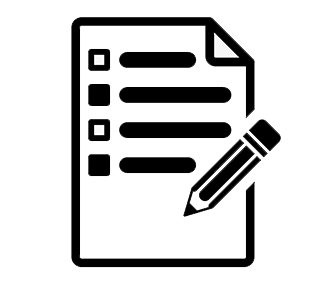Job Duties
1. Assess costs and estimate the production capabilities and economic value of oil and gas wells, in order to evaluate the economic viability of potential drilling sites.
2. Monitor production rates, and plan rework processes in order to improve production.
3. Analyze data in order to recommend placement of wells and supplementary processes to enhance production.
4. Specify and supervise well modification and stimulation programs, in order to maximize oil and gas recovery.
5. Direct and monitor the completion and evaluation of wells, well testing, and well surveys.
6. Assist engineering and other personnel to solve operating problems.
7. Develop plans for oil and gas field drilling, and for product recovery and treatment.
8. Maintain records of drilling and production operations.
9. Confer with scientific, engineering, and technical personnel in order to resolve design, research, and testing problems.
10. Write technical reports for engineering and management personnel.
11. Evaluate findings in order to develop, design, or test equipment or processes.
12. Assign work to staff in order to obtain maximum utilization of personnel.
13. Interpret drilling and testing information for personnel.
14. Design and implement environmental controls on oil and gas operations.
15. Coordinate the installation, maintenance, and operation of mining and oil field equipment.
16. Supervise the removal of drilling equipment, the removal of any waste, and the safe return of land to structural stability when wells or pockets are exhausted.
17. Inspect oil and gas wells in order to determine that installations are completed.
18. Simulate reservoir performance for different recovery techniques, using computer models.
19. Take samples in order to assess the amount and quality of oil, the depth at which resources lie, and the equipment needed to properly extract them.
20. Coordinate activities of workers engaged in research, planning, and development.
21. Design or modify mining and oil field machinery and tools, applying engineering principles.
22. Test machinery and equipment in order to ensure that it is safe and conforms to performance specifications.
23. Conduct engineering research experiments in order to improve or modify mining and oil machinery and operations.
Education Requirement
1. A bachelor's degree in petroleum engineering or in a related engineering discipline is required.
2. A master's degree or doctorate in a related engineering discipline may be required.
3. Licensing by a provincial or territorial association of professional engineers is required to approve engineering drawings and reports and to practise as a Professional Engineer (P.Eng.).
4. Engineers are eligible for registration following graduation from an accredited educational program, and after three or four years of supervised work experience in engineering and passing a professional practice examination.
![]() 4 to 8 years experience required
4 to 8 years experience required ![]() 69,994 CAD to 98,600 CAD P.A.
69,994 CAD to 98,600 CAD P.A. ![]() Canada
Canada




